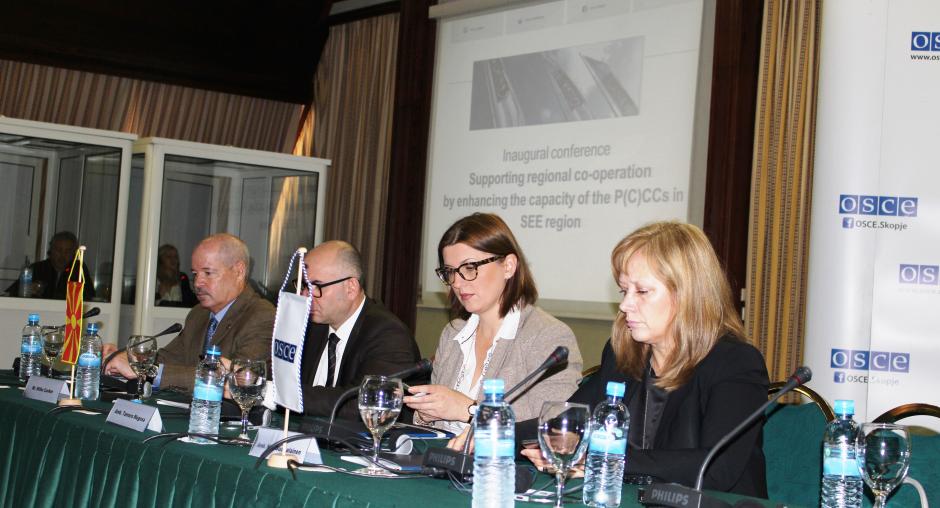OSCE launches project on enhancing the capacity of Police and Customs Co-operation Centres in South-Eastern Europe

SKOPJE, 25 October 2016 – An OSCE project to enhance the capacity of Police and Customs Co-operation Centres in South-Eastern Europe was launched today at a conference in Skopje, which brought together heads of police, the border police, and customs services from across the Western Balkans.
The project led by the Border Security and Management Unit of the OSCE Secretariat’s Transnational Threats Department and implemented in co-operation with the OSCE Mission to Skopje aims to support the development and sustainability of regional co-operation among Police and Customs Co-operation Centres by enhancing the capacity of the Centres in the South Eastern Region.
“The role of the Police and Customs Co-operation Centres is really important as they further existing cross border co-operation and allow the exchange of analytical and operational information in order to better fight transnational organized crime,” said the Head of the OSCE Mission to Skopje Ambassador Nina Suomalainen. “Effectively tackling transnational threats requires a regional concept and a multi-agency co-operation.”
The OSCE has for a number of years promoted Police and Customs Co-operation Centres as a good practice of cross-border co-operation on both the strategic and policy levels.
Dennis Cosgrove, the Head of the Border Security and Management Unit, welcomed “the genuine efforts of the OSCE participating States in the South Eastern European region to enhance co-operation” and was optimistic that the OSCE could provide helpful support to further enhance the capacities of the Centres in the region.
On the first day of the conference, participants will share their views on the current capacities and functioning of the Centres. On the second day national experts from the region, in co-operation with invited experts from the Police Co-operation Convention in South-Eastern Europe supported by the Ljubljana Secretariat of the Geneva Centre for Democratic Control of the Armed Forces (DCAF Ljubljana), European Police Office (EUROPOL), European Border and Coast Guard Agency (FRONTEX), World Customs Organization (WCO), the Regional Centre of the Migration, the Asylum and Refugees Regional Initiative (MARRI), and the German Federal Police will work together on preparing a field assessment action plan of the Centres as a first step to addressing the Centres’ needs.
